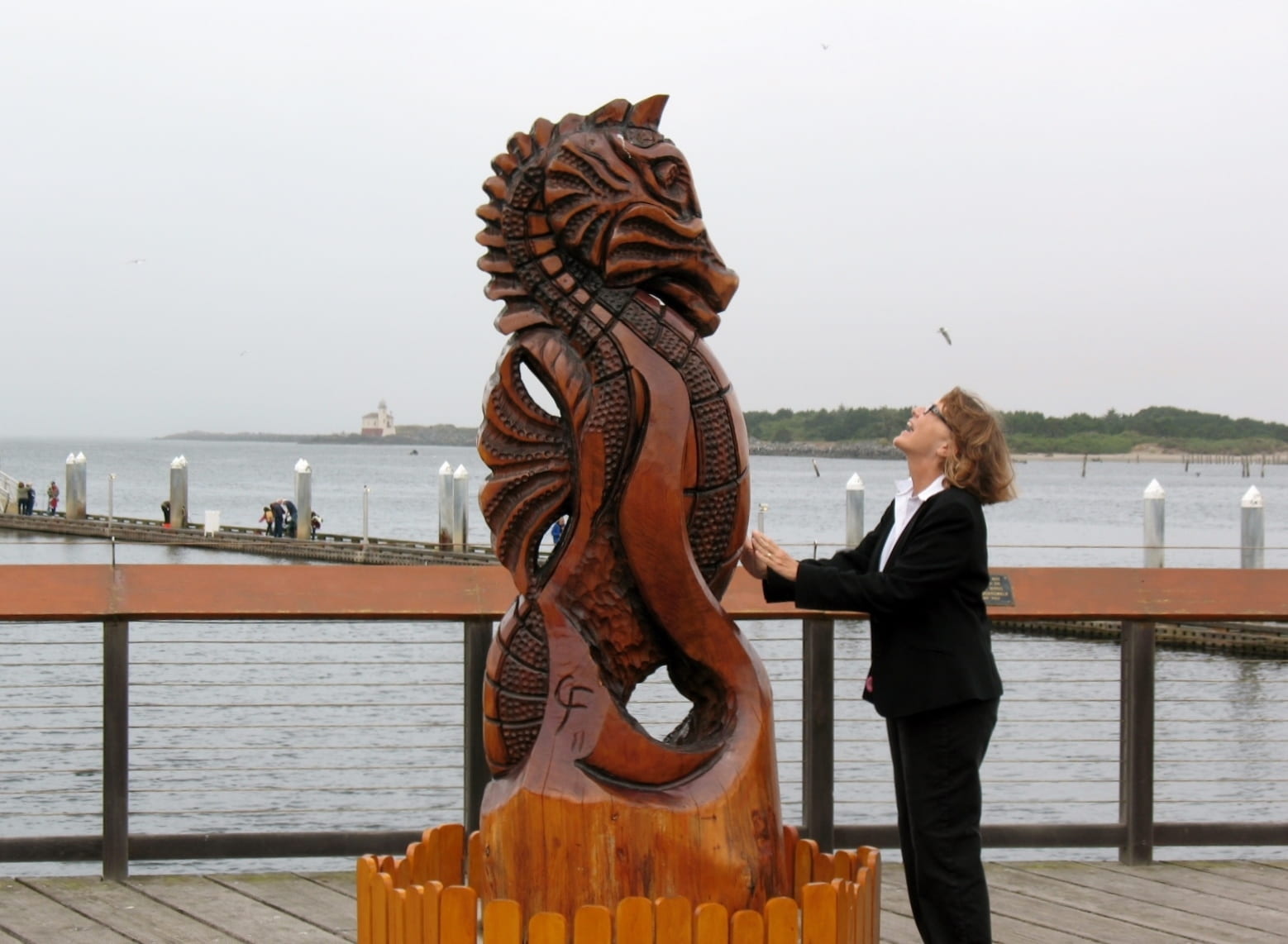
ACADEMICS: RESEARCH
I’ve authored or co-authored over 46 scholarly articles and book chapters, and presented approximately 66 papers at regional, national, and international conferences. My scholarly articles appear in journals representing at least 5 disciplines. In 2017 I was awarded the honor of Master Researcher in the J. W. Fulbright College of Arts and Sciences.
BOOK REVIEW
- Allen, M. W. (1993). Book review of Organizational communication: Balancing creativity and constraint, written by E. M. Eisenberg & H. L. Goodall, Jr. The Journal of Communication Studies, 12, 48-50.
- Allen, M. W. (1992). Book review of Rhetoric in an organizational society: Managing multiple identities, written by G. Cheney. The Southern Communication Journal, 57, 161.
CASE STUDIES
- Seibert, J. H., & Allen, M. W. (1994). Pointing fingers versus working as a team. In G. Peterson (Ed.), Organizational communication cases (pp. 133-137). Scottsdale, AZ: Gorsuch Scarisbrick.
- Seibert, J. H., & Allen, M. W. (1994). Working at county pool. In G. Peterson (Ed.), Organizational communication cases (pp. 94-98). Scottsdale, AZ: Gorsuch Scarisbrick.
- Allen, M. W., & Seibert, J. H. (1990). Communicators across governmental lines: How organizational changes increase role pressures. In B. D. Sypher (Ed.), Case studies in organizational communication (pp. 140-149). New York: Guilford.
- Allen, M. W. (1988). The revolving door: A case study of conflict in a media organization. In J. H. Seibert, J. W. Haas, & M. W. Allen (Eds.), Workbook in organizational communication (pp. 32- 35). Champaign, IL: Stipes.
CONFERENCE PROCEEDINGS
- Riemenschneider, C., Armstrong, D., Allen, M., & Reid, M. (2004). What I’m not willing to share: A discussion of turnover and barriers to promotion with women IT workers. Proceeding of the Tenth Americas Conference on Information Systems (pp.1238-1244).New York,NY.
- Allen, M. W., Armstrong, D. J., Reid, M. F., & Riemenschneider, C. K. (2009). IT employee retention: Employee expectations and workplace environments. Proceedings of the SIGMIS-CPR ’09 Conference.
- Patterson, J., & Allen, M. A. (1995). Accounting for your actions: How stakeholders respond to the strategic communication of environmental activist organizations. In D. B. Sachsman, K.
- Leach, L., Hayhoe, C., Allen, M., & Brewster, B. (2003). Improving parent-college student discussions about credit. In R. Travnichek (Ed.) Proceedings of the Association for Financial Counseling and Planning Education (pp 58-59). Savannah, GA.
- Riemenschneider, C. K., Allen, M. W., & Reid, M. (2002). Potential antecedents to the voluntary turnover intentions of women working in Information Technology (pp. 2018-2022). In R. Ramsower, J. Windsor, & J. DeGross (Eds.), Proceeding for the Eighth Americas Conference on Information Systems, http://aisel.isworld.org/Proceedings/AMCIS/2002/home.asp.
- Salomone, & S. Senecah (Eds.), Proceeding of the Conference on Communication and our Environment (pp. 165-169). Chattanooga, TN: The University of Tennessee.
- Allen, M. W., & Seibert, J. H. (1991). Organizational commitment: The influence of relationships, information quality, and support. Proceedings of the 1991 Southern Management Association annual meeting, Atlanta, GA.
CREATIVE PRODUCT
This interactive CD-ROM provides teens and parents with information about a variety of financial and communication topics ranging from buying a car to improving family financial discussions. It features an interactive video that illustrates parent-teen interactions in several financial situations, and includes information files, self-assessment quizzes, worksheets, and activities designed to involve both parents and teens.
GRANTS
- 2007: Co-PI on proposal funded for $13,000 to collect data from information technology departments in state governments. The Diane Blair Center for Southern Politics and Society ($6,500) and the Sam Walton College of Business at the University of Arkansas ($6,500) co-funded the project.
- 2005: Co-PI on grant proposal funded for $10,000 by The Ford Foundation entitled “Difficult dialogues: Promoting pluralism and academic freedom on campus.” Project received another $15,000 in funding from internal University sources.
- 2002-2004: PI on grant proposal funded for $106,741 by the National Endowment for Financial Education entitled “Improving parent-college student discussions about credit.”
- 1999: A Charles and Nadine Baum Teaching Innovation Grant for $1,000 to take conflict mediation training.
INVITED JOURNAL ARTICLES
-
Allen, M. W. & Craig, C. (2016). Rethinking corporate social responsibility in the age of climate change: A communication perspective. International Journal of Corporate Social Responsibility, 1, 1. Published online at https://jcsr.springeropen.com/articles/10.1186/s40991-016-0002-8.
- Allen, M. W. (2002). Creativity as expressed in the avocations and vocation of communication scholars. American Communication Journal, 6.1. (online at http://acjournal.org/holdings/vol6/iss1/)
- Allen, M. W. (2002). Family businesses: Communication, conflict, planning and succession. (Review essay). Journal of Family Communication, 2, 4, 217-226.
REFEREED JOURNAL ARTICLES
- Allen, M., & Spialek, M. (forthcoming). Young millennials, environmental orientation, food company sustainability and green word of mouth recommendations. Journal of Food Products Marketing. Published online: 19 Dec 2017. https://doi.org/10.1080/10454446.2017.1415827
- Nelms, C., Allen, M., Craig, C., & Riggs, S. (2017). Who is the adolescent environmentalist? Identity, media usage and communication orientation. Environmental Communication, 11, 4, 537-553. http://dx.doi.org/10.1080/17524032.2016.1275733
- Wicks, R. H. & Allen, M. (2016). Correlates of environmental political and civic engagement and political consumerism among youth during the 2008 Presidential Campaign. In E. Thorson, M. McKinney, and D. Shah (Eds.), Political socialization in a media saturated world (pp. 451-466). Peter Lang.
- Craig, C., & Allen, M. W. (2015). The impact of curriculum-based learning on environmental literacy, energy consumption, and policy. Utility Policy, 35, 41-49.
- Craig, C., & Allen, M. W. (2014). Connecting energy efficiency stakeholders: Energy consumer attitudes, planned behaviors, and perceptions of government energy subsidies and utility energy use. Energy Policy, 66, 224-233.
- Craig, C., & Allen, M. (2013). Sustainability information sources: Employee knowledge, perceptions, and learning. Journal of Communication Management, 17(4), 292–307.
- Craig, C., Allen, M. W., Reid, M. F., Riemenschneider, C. K., & Armstrong, D. J. (2013). The impact of career mentoring and psychosocial mentoring on affective organizational commitment, job involvement, and turnover intention. Administration & Society, 45(8), 949-973. First published on July 5, 2012 as doi:10.1177/0095399712451885
- Allen, M. W., Wicks, R., & Schulte, S. (2013). On-line environmental engagement among youth: Influences of parents, attitudes and demographics. Mass Communication & Society, 16:5, 661-686. First published online on July, 22, 2013 as doi: 10.1080/15205436.2013.770032.
- Allen, M.W., Walker, K., & Brady, R. (2012). Sustainability discourse within a supply chain relationship: Mapping divergence and convergence. Journal of Business Communication, 49, 210-236.
- Reid, M. F., Allen, M. W., Armstrong, D. J., & Riemenschneider, C. K. (2010). Perspectives of challenges facing women in IS: The cognitive gender gap. European Journal of Information Systems, 19, 526-539.
- Riemenschneider, C., Allen, M. W., Armstrong, D. J., & Reid, M. F. (2010). Potential absorptive capacity of state IT departments: A comparison of perceptions of CIOs and IT managers. The Journal of Organizational Computing and Electronic Commerce, 20, 68-90.
- Allen, M., Armstrong, D., Reid, M. F., & Riemenschneider, C. (2008). Factors impacting the perceived organizational support of IT employees. Information & Management, 45, 556-563.
- Reid, M., Allen, M., Riemenschneider, C., & Armstrong, D. (2008). The role of mentoring and supervisory support for state IT employees’ affective organizational commitment. Review of Public Personnel Administration, 28, 3-19.
- Reid, M., Riemenschneider, C., Allen, M., & Armstrong, D. (2008). Information technology employees in state government: A study of affective organizational commitment, job involvement, and job satisfaction. American Review of Public Administration, 38, 41-61.
- Edwards, R., Allen, M. W., & Hayhoe, C. (2007). Financial attitudes and family communication about students’ finances: The role of sex differences. Communication Reports, 20, 2, 90-100.
- Allen, M. W., Coopman, S., Hart, J. & Walker, K. (2007). Workplace surveillance and managing privacy boundaries. Management Communication Quarterly, 21, 2, 172-200.
- Armstrong, D. J., Riemenschneider, C. K., Allen, M. W., & Reid, M. F. (2007). Advancement, voluntary turnover and women in IT: A cognitive study of work-family conflict. Information and Management, 44, 2, 142-153.
- Allen, M. W., Edwards, R., Hayhoe, C., & Leach, L. (2007). Imagined interactions, family money management patterns and coalitions, and attitudes toward money and credit. Journal of Family and Economic Issues, 28, 3-22.
- Riemenschneider, C., Allen, M., Reid, M., & Armstrong, D. (2006). The effects of mentoring to reduce stress in a state IT department during times of transformational change. International Journal of Learning and Change, 1, 4, 429-445.
- Allen, M. W., Armstrong, D. J., Riemenschneider, C. K., & Reid, M. F. (2006). Making sense of the barriers women face in the information technology work force: Standpoint theory, self-disclosure, and causal maps. Sex Roles: A Journal of Research, 54, 831-844.
- Riemenschneider, C. K., Armstrong, D. J., Allen, M. W., & Reid, M. F. (2006). Barriers facing women in the IT workforce. The DATA BASE for Advances in Information Systems, 37, 4, 58-78.
- Hayhoe, C. R., Leach, L., Allen, M. W., & Edwards, R. (2005). Credit cards held by college students. Financial Counseling & Planning, 16, 1-10.
- Allen, M. W., Reid, M., & Riemenschneider, C. (2004). The role of laughter when discussing workplace barriers: Women in information technology jobs. Sex Roles: A Journal of Research, 50, 177-189.
- Webb, L. M., Allen, M. W., & Walker, K. L. (2002). Feminist pedagogy: Identifying basic principles. Academic Exchange, 6, 1, 67-72.
- Amason, P., Gibson, D. M., Amason, P., Webb, L., & Allen, M. W. (2002). Family and medical leave act: Its communicative impact on families and employers. Communication Law Review (online) http://commlawreview.org/Archives/v4i1/Family%20and%20Medical%20Leave%20Act.pdf
- Amason, P., Allen, M. W., & Holmes, S. (1999). Social support and acculturative stress in a multicultural workplace. Journal of Applied Communication Research, 27, 310-334.
- Allen, M. W., Amason, P., & Holmes, S. (1998). Social support, Hispanic emotional acculturative stress, and gender. Communication Studies, 49, 139-157.
- Amason, P., & Allen, M. W. (1997). Intraorganizational communication, perceived organizational support, and gender. Sex Roles, 37, 11/12, 955-977.
- Patterson, J., & Allen, M. W. (1997). Accounting for your actions: How stakeholders respond to the strategic communication of environmental activist organizations. Journal of Applied Communication Research, 25, 293-316.
- Coopman, S., Hart, J., Allen, M. W., & Haas, J. (1997). Detecting cultural knowledge in organization members’ personal construct systems. Journal of Constructivist Psychology, 10, 321-338.
- Allen, M. W., & Brady, R. (1997). Total Quality Management, organizational commitment, perceived organizational support, and intraorganizational communication. Management Communication Quarterly, 10, 316-341.
- Caillouet, R. H., & Allen, M. W. (1996). Employee impression management strategy use when discussing their organization’s public image. Journal of Public Relations Research, 8, 211-228.
- Allen, M. W. (1996). The relationship between communication, affect states, and voluntary turnover intentions. The Southern Communication Journal, 61, 198-209.
- Allen, M. W. (1995). Communication variables shaping perceived organizational support. Western Journal of Communication, 59, 326-346.
- Allen, M. W., & Caillouet, R. H. (1994). Legitimation endeavors: Impression management strategies used by an organization in crisis. Communication Monographs, 61, 44-62.
- Allen, M. W. (1992). Communication and organizational commitment: Perceived organizational support as a mediating factor. Communication Quarterly, 40, 357-367.
- Stone, B., & Allen, M. W. (1990). The impact of new technology on employees: A guide to consultants. Consultation: An International Journal, 9, 229-240.
- Allen, M. W., Seibert, J. H., & Rush, R. (1990). Gender differences in perceptions of work: Limited access to decision-making power and supervisory support. Women’s Studies in Communication, 13, 1-20.
- Allen, M. W., Seibert, J. H., Haas, J. W., & Zimmermann, S. (1988). Broadcasting’s silent majority: Departmental influence on perceptions and conflict. Journalism Quarterly, 65, 668-677
